How a BBC experiment in Glasgow pioneered programmes for schools
- Published
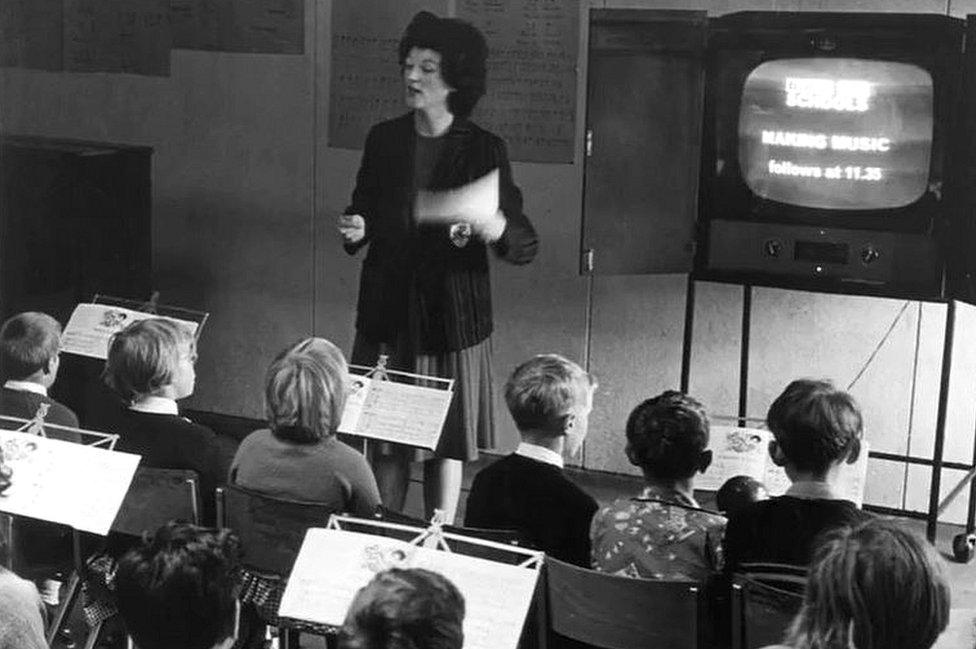
Those of a certain age will remember the TV trolley being wheeled in to the class, or even a special TV room in school
The 1920s was a period when children would be seen and not heard, especially in school.
So imagine the excitement when in such an austere setting, senior pupils at Garnetbank School in Glasgow were ushered to the school hall.
Settled down on the polished parquet flooring, no doubt cross-legged, they were part of something that would shape the learning landscape forever.
Taking place 100 years ago, it was the very first BBC experiment in providing programmes for schools.
Instead of the teacher standing out front talking to them, the lesson came from a large speaker or amplifier. What they heard was a special, instructive programme put together just for them.
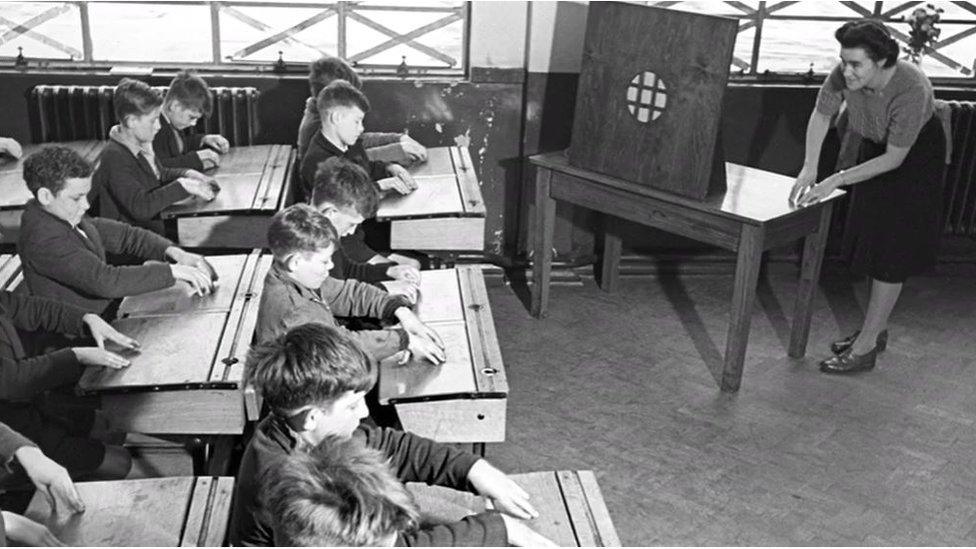
Early schools programmes came via a large amplifier
Lord Reith, the managing director of the BBC at the time, had held a meeting in the Central Hotel in Glasgow just weeks earlier, and suggested this idea to local education bodies.
Now it was about to be tested.
Technical details are sparse about how the programme was broadcast into the school, which was a five minute walk away from where the BBC studio was located on Bath Street in Glasgow.
The performers were in Studio 5SC in front of a huge, early model of a microphone.
Prof Charles Martin, Mademoiselle Pierette Grizel and Mr J R Peddie presented a violin recital, a talk about ballads, a music lesson and even a little French language taster.
About 100 pupils and interested spectators listened in the school hall, and they must have liked what they heard.
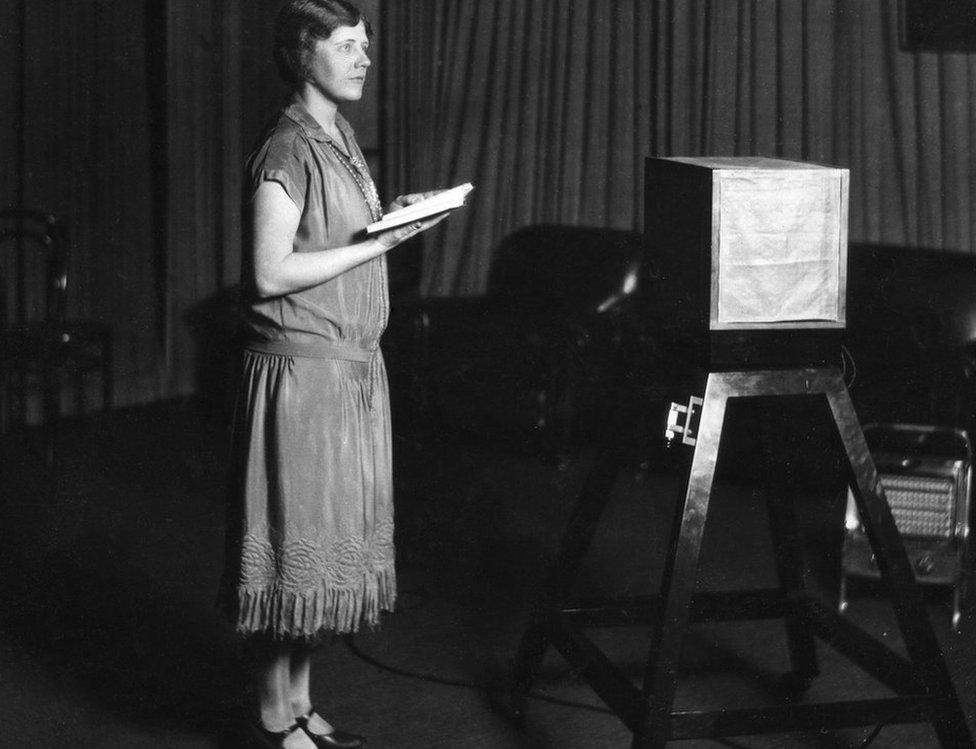
Dorothy Holmes-Gore in the radio studio in Glasgow in 1926
The broadcast seemed to prove the concept that providing educational programmes for school would capture the attention of pupils and that they would be able to learn in this way.
It gave the BBC confidence to start making regular schools broadcasts, and the team in Glasgow were broadcasting for Scottish schools just months later.
By the 1960s, programmes for schools were available on television.
There was a published timetable for teachers, which meant they could book their school's television to be wheeled into the classroom, or make a trip to the television room.
Alison Douglas has retired, but still works as a supply teacher at Garnetbank School.
She says she has valued schools programmes throughout her 48-year teaching career.
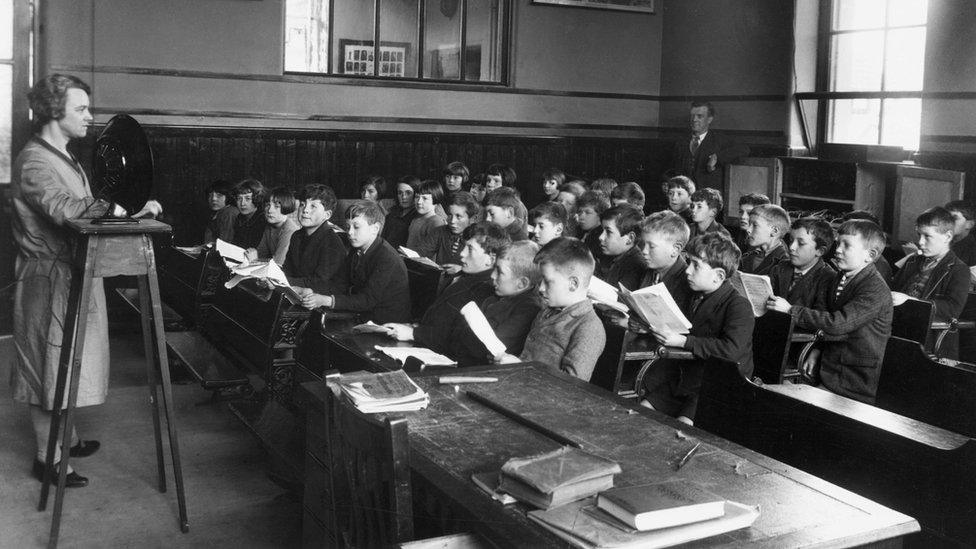
"It took the children outside of Glasgow and outside the school," she said.
"Children need lots of different stimulus, and there were lots of benefits for children who learned in different ways."
Asked about her favourite schools programmes, she remembered a "fabulous" show called Numbertime.
"This character called El Nombre would swing in and shout to the kids: 'What number is it?'
"They would all shout seven, seven! And he'd swing back out again.
"The kids all loved El Nombre. It was the highlight of their week and a highlight for me too, because he was funny."
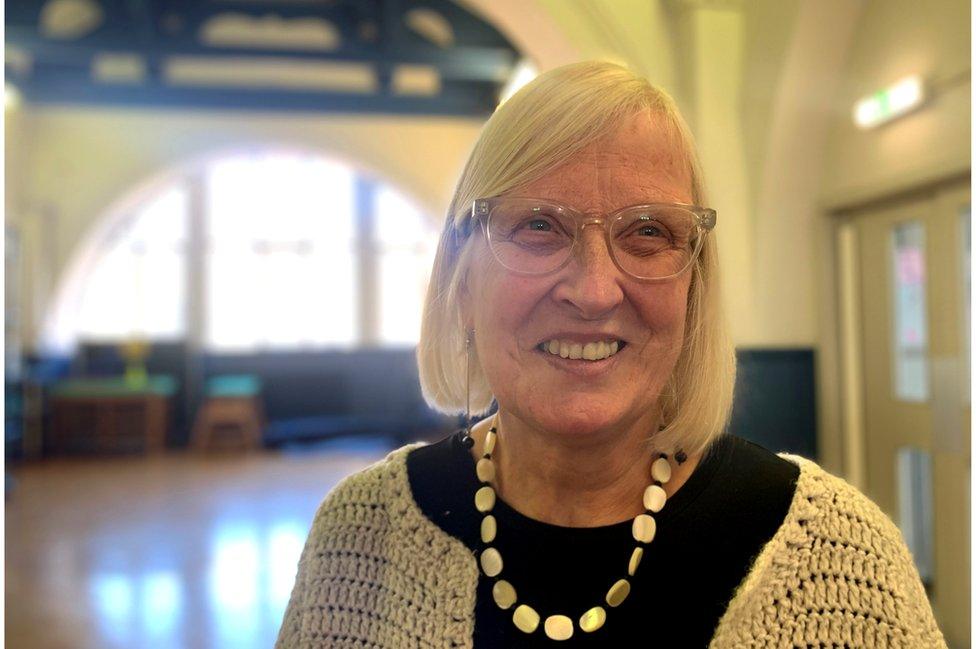
Teacher Alison Douglas enjoyed the programmes almost as much as her pupils
Teachers could also use programmes made by the BBC in Scotland which were specifically aimed at the Scottish curriculum.
These included Around Scotland; See You See Me; Let's See; and What? Where? When? Why? featuring the Happy Gang.
Bitesize is now the corporation's education brand, and BBC Scotland is still commissioning shows to reflect the country's curriculum.
However, these days they are more likely to be more interactive and can all be found on the BBC Bitesize website.
Derek Farrell, from Scotland Bitesize, says pupils can now use the material when it suits them - on a laptop, tablet or phone; at home or in the classroom.
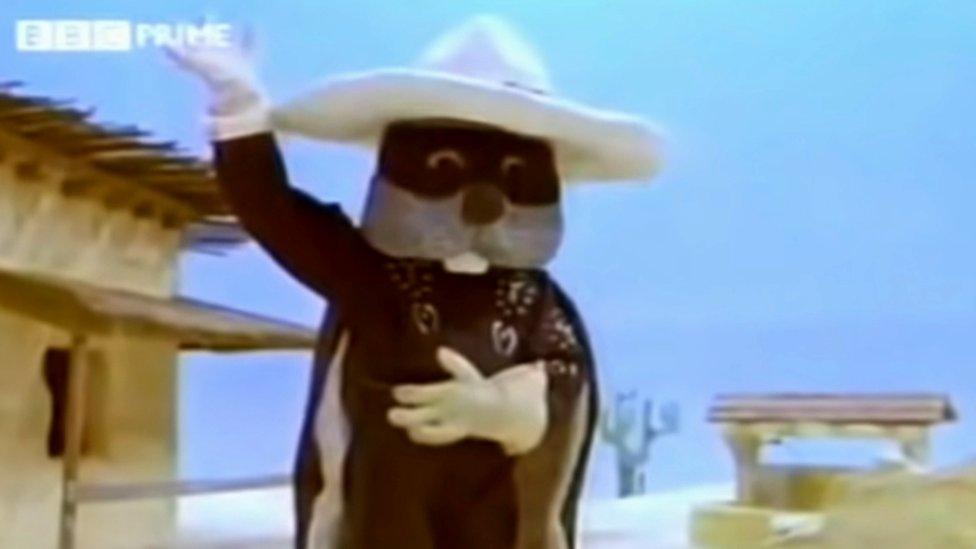
Numbertime produced a hit character in El Nombre, the masked number bandit
However, when the Covid pandemic struck they very quickly responded with a more traditional approach.
"We were very lucky to have the BBC Scotland channel," he said.
"We packaged up our material online and added some new content into TV programmes, so there was a schedule and an appointment to view.
"Children, teachers and parents knew there would be a time in the morning they could sit down and know there was something of quality on the television they could definitely learn from.
"I think that sense of familiarity - it was what parents knew from sitting down for broadcasts - was very helpful, and we continued that for months."